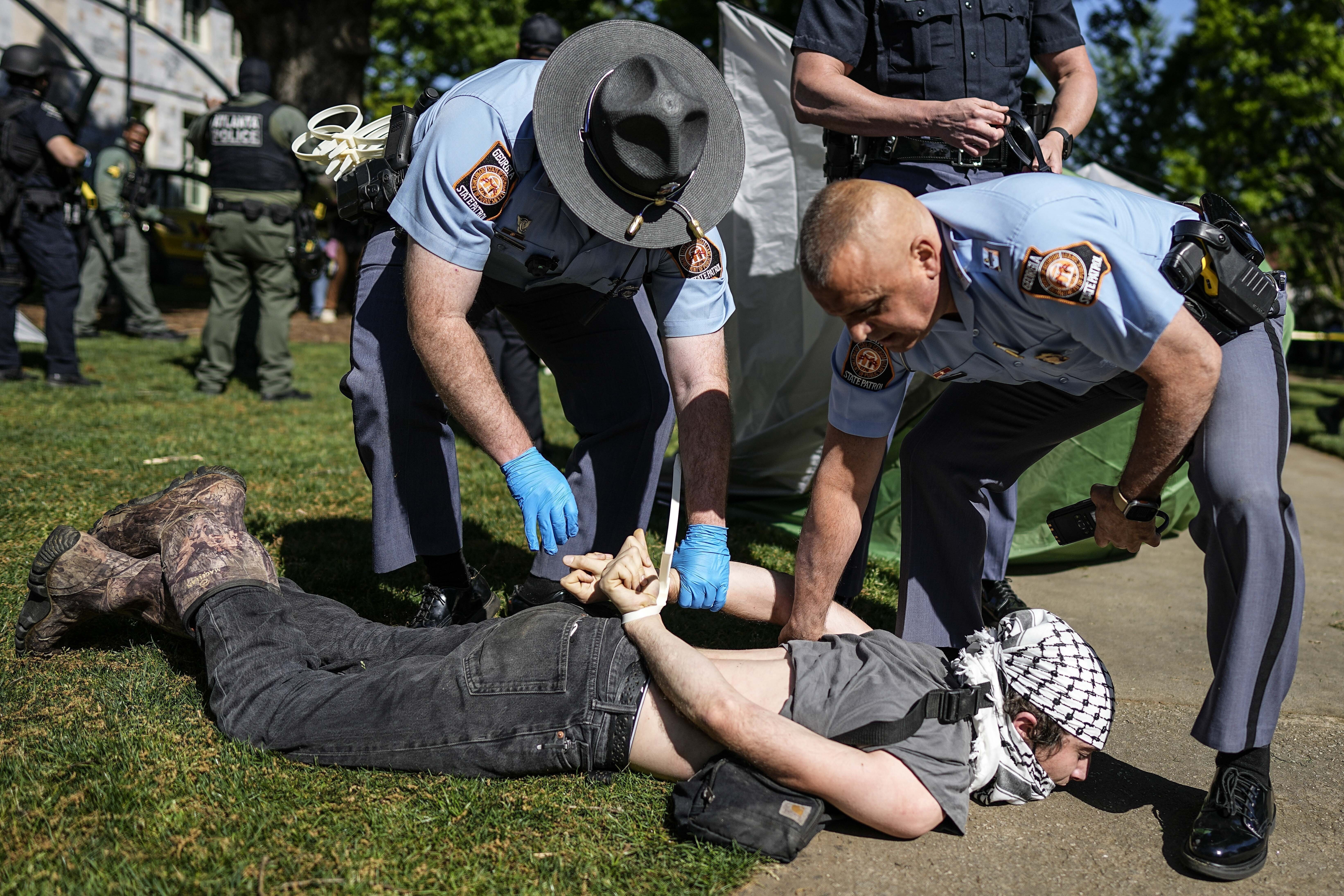Hugo Chavez's body will be preserved and forever displayed inside a glass tomb at a military museum not far from the presidential palace from which he ruled for 14 years, his successor announced Thursday in a Caribbean version of the treatment given Communist revolutionary leaders such as Lenin, Mao and Ho Chi Minh.
Vice President Nicolas Maduro, Venezuela's acting head of state, said Chavez would first lie in state for "at least" seven more days before the museum becomes his permanent home. It was not clear when exactly he would be moved from the military academy where his body has been since Wednesday.
For full world news coverage, visit NBCNews.com.
Later Thursday, the National Assembly speaker announced that Maduro would be sworn in Friday night as acting president following a state funeral and would call elections within 30 days. That enables him, as the designated governing party candidate, to run for president as Chavez desired. Legal scholars say that under the constitution, the legislature's speaker should instead be sworn in and organize the vote.
More than 30 heads of government, including Cuban President Raul Castro and Iranian leader Mahmoud Ahmadinejad are to attend the funeral. U.S. Rep. Gregory Meeks, a New York Democrat, and former Rep. William Delahunt, a Democrat from Massachusetts, will represent the United States, which Chavez often portrayed as a great global evil even as he sent the country billions of dollars in oil each year.
Maduro said the ceremony would begin at 11 a.m., but did not say where.
"We have decided to prepare the body of our 'Comandante President,' to embalm it so that it remains open for all time for the people. Just like Ho Chi Minh. Just like Lenin. Just like Mao Zedong," Maduro said.
U.S. & World
He said the body would be held in a "crystal urn" at the Museum of the Revolution, a mile from Miraflores presidential palace.
The announcement followed two emotional days in which Chavez's supporters compared him to Jesus Christ, and accused his national and international critics of seeking to undermine his "revolution."
A sea of sobbing, heartbroken humanity jammed Venezuela's main military academy Thursday to see Chavez's body, some waiting 10 hours under the twinkling stars and the searing Caribbean sun to file past his coffin.
On Thursday night, Castro, Presidents Jose Mujica of Uruguay and and Dilma Rousseff of Brazil viewed the open casket along with former Brazilian president Inacio Lula da Silva.
But even as his supporters attempted to immortalize the dead president, a country exhausted from round-the-clock mourning began to look toward the future. Some worried openly whether the nation's anointed leaders are up to filling his shoes, and others said they were anxious for news on when elections will be held. The constitution mandates they be called within 30 days, but the government has yet to address the matter.
"People are beginning to get back to their lives. One must keep working," said 40-year-old Caracas resident Laura Guerra, a Chavez supporter who said she was not yet sold on Maduro. "I don't think he will be the same. I don't think he has the same strength that the 'comandante' had."
At the military academy, Chavez lay in a glass-covered coffin wearing the olive-green military uniform and red beret of his paratrooper days and looking gaunt and pale, his lips pressed together. In a nod to the insecurity that plagues this country, mourners had to submit to a pat down, pass through a metal detector and remove the batteries from their mobile phones before they entered.
As they reached the coffin, many placed a hand on their heart or stiffly saluted. Some held up children so they could see Chavez's face.
"I waited 10 hours to see him, but I am very happy, proud to have seen my comandante," said 46-year-old Yudeth Hurtado, sobbing. "He is planted in our heart."
Government leaders had been largely incommunicado Wednesday as they marched in a seven-hour procession that brought Chavez's body from a military hospital to the academy. They finally emerged before the cameras Thursday but offered no answers.
Asked when an election would be held, Foreign Minister Elias Jaua said only that the constitution would be followed.
Jaua also struck the defiant, us-against-the-world tone that the government has projected, which some critics fear could incite passions in a country that remains on edge.
"They couldn't defeat him electorally, they couldn't assassinate him, they couldn't beat him militarily," Jaua declared. "Chavez died as president ... Chavez died the leader of his people."
Just hours before the 58-year-old president's death on Tuesday, Maduro expelled two U.S. diplomats and lashed out at opponents at home and abroad. He implied that the cancer that ultimately killed Chavez was somehow injected into him by his enemies, a charge echoed by Ahmadinejad.
While Maduro is the clear favorite over likely opposition candidate Henrique Capriles, the nation is polarized between Chavez supporters and critics who hold him responsible for soaring inflation, a growing national debt and a jump in violent crime.
Opponents have also questioned the government's allegiance to the rule of law, arguing that Maduro is not entitled to become interim president under the 1999 constitution. They have also criticized the defense minister, Adm. Diego Molero, for pledging support for Maduro's candidacy despite a ban on the military taking political sides.
Ana Teresa Sifontes, a 71-year-old housewife and opposition sympathizer, said Chavez did some good for the nation's poor. But she said he had bungled the economy, exhibiting more interest in regional grandstanding than governing.
She said she hoped his death would bring change.
"Why do we have to pay for Cuba?" she asked, referring to the billions in Venezuelan oil Chavez sent to Havana each year in return for Cuban doctors and other experts. "Why do we need them here?"
Venezuelan officials have yet to say what type of cancer he suffered from, but details were emerging of the former paratrooper's final hours.
The head of Venezuela's presidential guard, Gen. Jose Ornella, told the AP late Wednesday that Chavez died of a massive heart attack after great suffering.
"He couldn't speak but he said it with his lips ... 'I don't want to die. Please don't let me die,' because he loved his country, he sacrificed himself for his country," said Ornella, who said he was with the socialist president at the moment of his death Tuesday.
In Washington, State Department Spokeswoman Victoria Nuland said the U.S. hoped the upcoming vote would be held on a level playing field, and lamented the expulsion of the American officials.
"We are obviously disappointed by these false accusations levied against our embassy officials," Nuland said. "This is part of a tired playbook of alleging foreign interference as a political football in internal Venezuelan politics."



